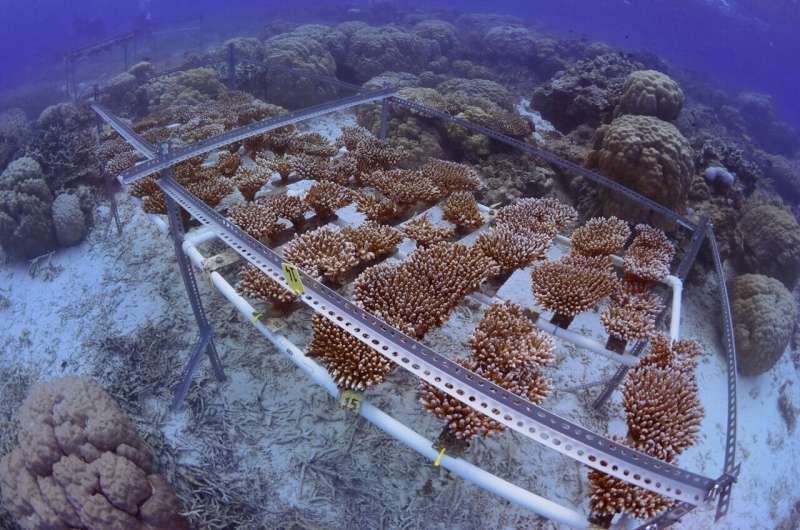Researchers from Newcastle University have made a groundbreaking discovery in coral conservation. Their study, published in Nature Communications, shows that selective breeding can modestly improve the heat tolerance of adult corals, offering a glimmer of hope for these fragile ecosystems facing the devastating impacts of climate change.

Breeding Corals for Resilience: A Promising Approach
The study, led by experts at Newcastle University’s Coralassist Lab, documents the world’s first effort to selectively breed adult corals for enhanced heat tolerance. This means the ability of adult corals to survive intense marine heat waves, which are becoming more frequent and severe due to climate change.
The researchers found that by selecting parent colonies with higher heat tolerance, they were able to increase the tolerance of their offspring. This improvement was modest, potentially enhancing heat tolerance by around 1°C per week within a single generation. However, the authors stress that this level of enhancement is likely insufficient to keep pace with the rapid warming expected in the coming decades.
Selective Breeding: Challenges and Limitations
The study’s lead author, Liam Lachs, a Postdoctoral Research Associate at Newcastle University, emphasizes that selective breeding is not a silver bullet solution. “This work shows that selective breeding is feasible but not a silver bullet solution and that more research is needed to maximize breeding outcomes,” he says.
One of the key challenges is ensuring that the selected traits, such as short-term heat tolerance, translate to improved survival during longer, more natural marine heat waves. The researchers found no genetic correlation between these two traits, suggesting that separate interventions may be needed to address different types of heat stress.
Another concern is the potential dilution of selected traits once corals are reintroduced to the wild population. The researchers highlight the need for further research to determine the optimal number of corals that need to be outplanted to have a meaningful impact on wild populations, while also avoiding the loss of selected traits.
Dr. James Guest, Reader in Coral Reef Ecology at Newcastle University, explains, “The results show that selective breeding could be a viable tool to improve population resilience. Yet, there are still many challenges that need to be overcome.” These challenges include understanding trade-offs, maximizing responses to selection, and ensuring the effectiveness of such interventions in the face of urgent climate action.
Coral Conservation: A Glimmer of Hope Amidst Climate Challenges
Coral reefs are at the forefront of climate change impacts, as reef-building corals are highly sensitive to marine heat waves. These events can trigger mass coral bleaching and mortality, leading to significant declines in coral reef ecosystems globally.
While the study’s findings offer a glimmer of hope, the authors emphasize that rapid reductions in global greenhouse gas emissions are an absolute requirement to mitigate warming and give corals a chance to adapt.
“Given the moderate levels of enhancement we achieved in this study, the effectiveness of such interventions will also depend on urgent climate action,” says study lead author, Dr. Adriana Humanes, Postdoctoral Research Associate at the Coralassist Lab, Newcastle University.
The researchers call for more research and development to understand how to effectively implement selective breeding interventions and maximize their outcomes, in the hope of keeping pace with the lower levels of warming that can be achieved through concurrent climate action.
